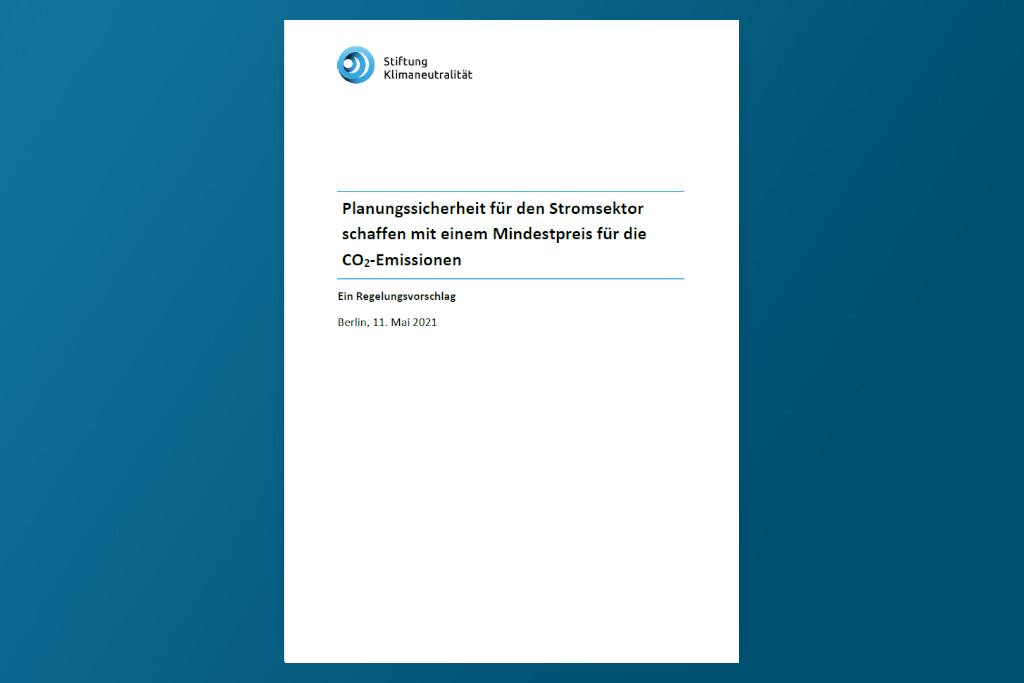The energy industry is still the sector with the highest greenhouse gas emissions in Germany today. The main polluters are coal-fired power plants.
With the Coal-fired Power Generation Termination Act, it was decided to phase out coal-fired power generation in Germany by 2038. For 2030, the decommissioning path is based on the sector target of the current Climate Protection Act (2019 version) for the energy industry. Overall, the Climate Protection Act (2019) aims to reduce greenhouse gas emissions in Germany by 55% by 2030.
The current governing parties have announced that they will raise the climate target for 2030 to at least 65%. The studies we have published (Towards a Climate Neutral Germany 2050; Towards a Climate Neutral Germany 2045) have shown that a 65% reduction in greenhouse gas emissions requires an end to coal-fired power generation by 2030.
CO2 emissions from the European power plant fleet are limited by the EU Emissions Trading Scheme (ETS). As part of the “European Green Deal”, the EU Commission has announced that it will present a reform proposal for the ETS, adapted to the EU’s new climate targets. It will take several years before the reform proposal comes into force. At present, we can only speculate about the outcome. Although an increase in the carbon price can be expected, the reliability and predictability of the carbon price signal plays a decisive role in the decarbonization of the power sector. Experience since the introduction of emissions trading in 2005 shows that price developments have been very uneven and unpredictable. This can lead to a failure to make necessary investments in climate-friendly technologies.
Against this background, Climate Neutrality Foundation proposes the introduction of a national carbon floor price for the electricity sector (in German). This should hedge the carbon price “downwards” and thus create a minimum of planning security for all parties involved. The proposal is based on a study by the Öko-Institut (in German) and a legal opinion by the Stiftung Umweltenergierecht (in German).
